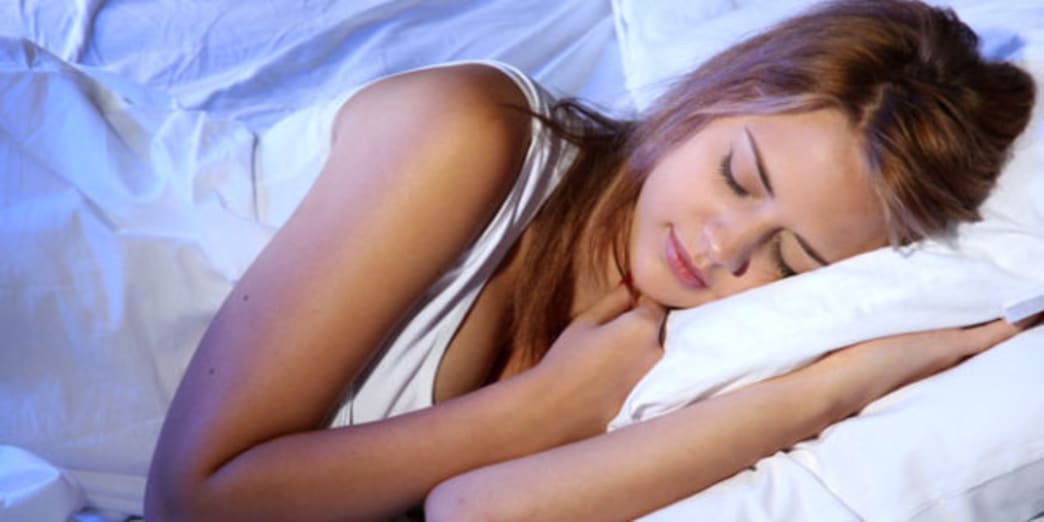
Getting a good night’s sleep should be easy; the only thing you need to do is, quite literally, nothing at all. Yet so many of us fail at this vital task night after night and are faced to deal with the consequences, the least of which is a bad mood, and the worst is far more concerning.
“Chronic sleep deprivation can increase the likelihood of coronary events, obesity and type 2 diabetes, and can reduce the body’s resistance to infection,” explains Dr. Teofilo L. Lee-Chiong Jr., sleep expert and Chief Medical Liaison at Philips Respironics. And the list of negative side effects doesn’t end there. You know that clumsy, slow-mo feeling you get after a night of tossing and turning? When you can’t seem to hold a thought or get from point A to point B without tripping over your own feet? That seemingly harmless loopiness is actually quite problematic, even dangerous.
“Chronic sleep loss has been said to increase incidences of automobile accidents, work accidents, relationship problems,” says Mark J. Muehlbach, Ph.D., clinical director at Clayton Sleep Institute in St. Louis, Missouri. And it doesn’t take long to reach this state of increased risk. According to Dr. Muehlbach, “After five nights of obtaining five hours of sleep or less we show similar behaviors as being legally intoxicated.”
The takeaway: you need sleep. Not only for the sake of your own health, but for the safety and well-being of your loved ones, colleagues and fellow motor vehicle operators. The next time you hit the hay, consider these dos, don’ts and general guidelines for getting a decent night of shut-eye.
How Much Sleep Is Enough?
We’re all familiar with the eight-hour rule, but is that the standard for everyone?
Not exactly. “Eight hours is not a magic number,” explains Dr. Muehlbach. While the National Sleep Foundation recommends that adults ages 18–64 get somewhere between seven and nine hours, the optimum amount of sleep varies per person and changes with age.
Dr. Lee-Chiong provides a simple answer to this age-old question: “You should get whatever is necessary to both consistently achieve and sustain wakefulness and alertness to accomplish the tasks of daily living and promote health.”
It’s All In The Preparation
Getting a good night’s sleep can be a bit like getting in shape or running a marathon; it comes naturally for some people, but most of us have to work at it. Here are few ways you can set yourself up for success:
Establish a routine. Go to bed and wake up at the same time every day, even on the weekends. “Our circadian rhythm, the 24-hour rhythm that helps regulate our sleep/wake cycle, likes to be on a set schedule,” explains Dr. Muehlbach.
Wind down. Once you’ve set firm sleep and wake times, incorporate a 45-minute “wind down” period leading up to lights out. Use this time to read quietly or meditate. Most importantly, shut off all screens, including your mobile device. “Our circadian rhythm is sensitive,” says Dr. Muehlbach, “and even the light from cell phones can affect our sleep.”
Exercise. Get your blood pumping, but make sure you’re finishing your workouts about four hours prior to turning in. While exercise has been shown to improve sleep quality, Dr. Lee-Chiong advises that “stimulating physical activities late in the evening are particularly sleep disruptive.”
Reserve your bedroom for sleep. Your bedroom should be a sanctuary, not a home theater or second office. “Habitually using the bed and bedroom for non-sleep-related activities, such as watching TV or spending excessive time awake in bed are no-no’s if one is trying to improve sleep,” says Dr. Lee-Chiong.
Troubleshooting
You know what they say about the “best laid plans…” Here are a few things to try the next time you find yourself wide awake and staring at your bedroom ceiling.
Get up. The goal is to get your brain to associate your bed with falling asleep. So if you’ve been awake for over 20 minutes, don’t just lie there. Get up and move to a different part of the house. Dr. Muehlbach recommends doing a relaxing activity or reading something that’s not particularly exciting until drowsiness sets in.
Adjust your environment. Most people sleep best in cool, dark and quiet rooms. Try lowering the temperature, hanging light-blocking curtains and using a fan or white noise machine to drown out sound.
Watch what you drink. You may need to cut off your tea and coffee consumption earlier than you think. “Avoid caffeine about six hours before bedtime,” advises Dr. Muehlbach. And while a cocktail or glass of wine may help you initially fall asleep, it can turn against you later once your body begins to metabolize the alcohol. Therefore, reduce your booze consumption or avoid it all together.
Make lists. If racing thoughts, to-do lists or constantly looping song lyrics tend to keep you up, try writing down what’s on your mind during your wind down period. “You can also jot down things that you are worried about. The idea is get these things out of your head before you get into bed,” says Dr. Muehlbach.
While many sleep issues can be remedied with lifestyle changes, it’s important to consult a doctor if your problem becomes persistent. According to Dr. Muehlbach, signs of more serious sleep disorders include trouble sleeping three nights a week for three months, loud snoring or falling asleep unintentionally during the day.
Written by Jenessa Connor for Oxygen Magazine and legally licensed through the Matcha publisher network. Please direct all licensing questions to legal@getmatcha.com.


